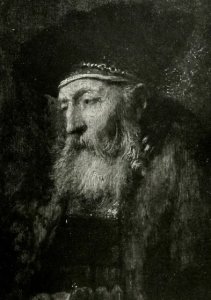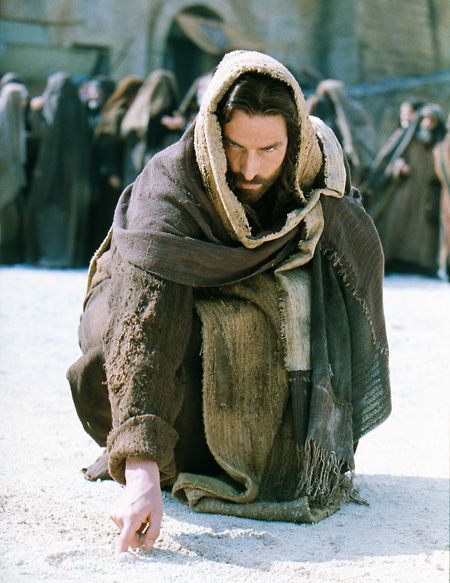
The Lord Rejects Saul
As many who have followed me for a bit, I have fallen into the Psalms, and I can’t get up! (As if I would want to.) The Psalms are a majestic collection of poetry, of heart felt human experiences that constantly challenge me in my own frail attempt to follow the true King. As many of the Psalms are written by David, my study on the Psalms has spurred me on to looking at the life of David, is the main contributor to this book, and to follow the victories and tragedies of the shepherd King of Israel.
Many times in the narrative, we will see the Lord Jesus, imperfectly, yet a reflection of His spirit in a man with weaknesses.
Saul’s Rejection
1 Samuel 15
20 And Saul said to Samuel, “I have obeyed the voice of the LORD. I have gone on the mission on which the LORD sent me. I have brought Agag the king of Amalek, and I have devoted the Amalekites to destruction.
21 But the people took of the spoil, sheep and oxen, the best of the things devoted to destruction, to sacrifice to the LORD your God in Gilgal.”
22 And Samuel said, “Has the LORD as great delight in burnt offerings and sacrifices, as in obeying the voice of the LORD? Behold, to obey is better than sacrifice, and to listen than the fat of rams.
23 For rebellion is as the sin of divination, and presumption is as iniquity and idolatry. Because you have rejected the word of the LORD, he has also rejected you from being king.”
Can anyone hear Adam in Saul’s voice? Saul did all the good stuff, and those “people” did the bad stuff. It is called blame shifting and Saul is adept in this artform of communication. Can you hear Saul boasting of his obedience, his uprightness, his stellar estimation of himself?
- I have obeyed
- I have gone on the mission
- I have brought Agag
- I have devoted
And of course, if he is going to elevate himself, someone has to take the fall, someone has to assume responsibility for an action that is not right.
- But the people took….
Even as Saul brings this to Samuel’s attention, I am starting to think Saul may have realized he was in the wrong before God, and was seeking to deflect blame, to place it on the “people” You know how it goes – she gave me the apple!
We will consider his reason for throwing “the people” under the bus shortly, but for now, Saul was about to get an earful from the prophet of God. There was no getting away with the consequences of his decisions. Samuel would see to that!
But first, lets consider the passage as it speaks of two men and two ways of relating to God. Saul and Samuel. Sacrifice or obedience.
First off, take note that Saul’s sacrifice cost him nothing. He wasn’t sacrificing his personal property, or possessions. This which was to be sacrificed was someone else’s property. If anything, this act of “sacrifice” only elevated his estimation of himself in his own mind. Look how I go above and beyond the call of God. Saul takes the truth of the sacrificial system, warps it to his own desires, and tries to come off smelling like a rose.
Samuel, on the other hand, even though living under a sacrificial system, is speaking of the source motivation of any sacrifice. Samuel is not saying that sacrifice is wrong, for the Lord had commanded a sacrificial system through Moses. No – the sacrificial system was not the problem if understood in the light of God’s desire for His people. The sacrificial system was to be performed out of a heart seeking to obey the Lord, to seek to please Him and not I. To sacrifice included a personal cost!
Years later, another king, in a time of trial and seeking the Lord’s favor, came to the realization he needed to provide a sacrifice to the Lord. During that time of testing, this king was offered real estate and livestock as a gift from a subject, without any cost, with no strings attached. This king knew better!
2 Samuel 24:24
But the king said to Araunah, “No, but I will buy it from you for a price. I will not offer burnt offerings to the Lord my God that cost me nothing.” So David bought the threshing floor and the oxen for fifty shekels of silver.
Saul was short-circuiting the system to gain favor for himself. He sought to use religion to gain influence with God, and reputation with the people, even to impress God’s prophet. Saul was about to sacrifice that which cost him nothing, to please a God he didn’t love or trust. Saul was self deluded and Samuel could not have been clearer, but alas it was too late, for Saul’s kingdom was finished.
It was years before Saul actually was physically off the throne, but his kingship before God came to a crashing halt that day.
It occurs to me that another king had a kingdom come crashing to a halt one day, and yet he still has tremendous influence over many. Two millennial ago, a usurper king was stripped of his kingdom when the true King rose from the dead, giving the old king the boot and receiving authority over all to Himself. As with Saul, the enemy of our souls still seeks to influence his previous kingdom even though the True King is in the background.
David has been in the background for much of Saul’s story, being prepared for his time as King, going through suffering and trials to build him into the man Israel needs.
Hebrews 5:8 Although he was a son, he learned obedience through what he suffered.
The true King is sitting on His throne, and though it appears the old king still has authority, it is only through deception and distraction. The true King is on His throne and for that we can be thankful, praising His Name in front of that old serpent!
Thanks again for coming to visit. I hope you found something of interest in this post and would appreciate a comment, to begin a discussion. If you know someone this blog may bless (or challenge), send them a link, so they may join us in our discussion.
Come join us at Considering the Bible

